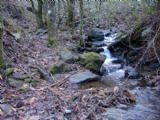CIFRE SCHOLARSHIP: Impact of hydrological alteration on mountain aquatic ecosystems in the French Alps.
TEREO – St. Helena Lake (A. Dos Santos), IRSTEA – Lyon (St. Cauvy-Fraunié, N. Lamouroux)
from autumn 2018
Context
Mountain watersheds display particularly complex hydrographic networks, characterized by a high environmental heterogeneity as they include streams from different water sources (groundwater, rain, snowmelt, glacier melt), which present specific hydrological regimes and environmental conditions (Hannah et al., 2007, Cauvy-Fraunié et al., 2015). These alpine hydrosystems shelter a singular local biodiversity and exhibit a high spatial variability in aquatic communities at the catchment scale (Jacobsen et al., 2012, Cauvy-Fraunié et al., 2016). However, these aquatic ecosystems are strongly threatened by hydrological alterations due to both the reduction in snow cover and the acceleration of glacier shrinkage linked to the ongoing climate change but also to anthropogenic pressures on water resource (hydropower, industry, irrigation, artificial snow; Campion, 2002). In addition, in the current political context of greenhouse gas reduction, we are experiencing a proliferation of renewable energy production projects, in particular micro-hydropower plants. Among the existing tools allowing to predict the impacts of hydrological alterations on aquatic communities, hydraulic habitat models are particularly used. These models combine both hydraulic models and biological models of hydraulic preferences of aquatic organisms. Statistical models of hydraulic habitat, partly developed by our team (Dynam, Irstea – Lyon), allow determining the frequency distribution of velocity, water level, substrate and near-bed shear stress at the reach scale for a given discharge (Lamouroux et al., 1999, 2002, 2005, Girard et al., 2014). The hydraulic preferences of the organisms link the densities of the organisms with hydraulic habitats. The combination of these two types of models allows quantifying the impact of flow alteration on the probability of organism occurrence, and thus evaluating the effect of infrastructures on the aquatic ecosystem. However, hydraulic preference models were mostly developed for fish. Although there are some studies on invertebrates (Dolédec et al., 2007, Mérigoux et al., 2009), these eco-hydrological models have not yet been adapted to mountain streams, especially in fishless streams.
Therefore, it is urgent to examine the ecosystem functioning of these mountain streams to characterize the relationship between hydraulic conditions and aquatic organisms, especially invertebrates, in order to predict the response of aquatic ecosystems to hydrological alterations. The main aim of this thesis is to qualify and quantify the impact of hydrological alterations on mountain aquatic ecosystems, based on aquatic invertebrate communities.
The main objectives of this project will be to:
1) characterize the hydrological and thermal regime (temporal variability of flow and temperature), environmental conditions (turbidity, conductivity …) and aquatic invertebrate communities of each different type of alpine rivers.
2) estimate the impacts of flow alteration on aquatic invertebrate communities based on the combination of hydraulic models and hydraulic preferences.
3) assess the effects of flow modification due to micro-hydropower plants on invertebrate communities based on comparison of aquatic communities upstream and downstream various micro-hydropower plants.
Environment
The student will be based at both the laboratory DYNAM (UR RiverLy), IRSTEA supervised by Sophie Cauvy-Fraunié and Nicolas Lamouroux (IRSTEA) in Lyon and at TEREO office (www.tereo-eren.fr/) in Saint-Hélène-du-Lac supervised by Anne Dos Santos. The student will be ~ 60% at IRSTEA and 40% at TEREO. Part of the data is already available. The student will perform two field campaigns: summer 2019 and 2020 where he/she will perform hydrological/hydraulic measurements and sample aquatic invertebrates. He/she will participate to both invertebrate sorting, counting and identifying. The student will develop both hydraulic and biologic models.
Profile required
We are looking for a motivated, curious, and independent student, with a research master degree. He/she should have a strong interest in aquatic ecosystems, hydrology and invertebrates. He/she should also show interest in field work (especially in the mountain) and multidisciplinary work. He/she should have a good knowledge of hydrology and/or ecology of aquatic systems. The study requires a solid experience in statistics and data processing as well as a good knowledge of the English language. An experience on aquatic invertebrate determination is advantageous. The thesis will start from fall 2018.
Contact :
Sophie Cauvy-Fraunié : sophie.cauvy-fraunie@irstea.fr
Anne Dos Santos: a.dossantos@tereo-eren.fr
Send a CV and a cover letter as soon as possible, the call for applications will be open until the position is filled.
References:
Cauvy-Fraunié S., Andino P., Espinosa R., Calvez R., Jacobsen D. & Dangles O. (2016) Ecological responses to experimental glacier-runoff reduction in alpine rivers. Nature Communications.
Cauvy-Fraunié S., Espinosa R., Andino P., Jacobsen D. & Dangles O. (2015) Invertebrate metacommunity structure and dynamics in an andean glacial stream network facing climate change. PloS one, 10, e0136793.
Doledec S., Lamouroux N., Fuchs U. & Merigoux S. (2007) Modelling the hydraulic preferences of benthic macroinvertebrates in small European streams. Freshwater Biology, 52, 145-164.
Girard V., Lamouroux N. & Mons R. (2014) Modeling point velocity and depth statistical distributions in steep tropical and alpine stream reaches. Water Resources Research, 50, 427-439.
Hannah D.M., Brown L.E., Milner A.M., Gurnell A.M., Mcgregor G.R., Petts G.E., Smith B.P.G. & Snook D.L. (2007) Integrating climate–hydrology–ecology for alpine river systems. Aquatic Conservation: Marine and Freshwater Ecosystems, 17, 636-656.
Jacobsen D., Milner A.M., Brown L.E. & Dangles O. (2012) Biodiversity under threat in glacier-fed river systems. Nature Climate Change, 2, 361-364.
Merigoux S., Lamouroux N., Olivier J.M. & Doledec S. (2009) Invertebrate hydraulic preferences and predicted impacts of changes in discharge in a large river. Freshwater Biology, 54, 1343-1356.

 Figure 1. Map of the geographic position of the total lakes and reservoirs included in the thesis. Blue squares are the reservoirs from the reports of the CHE (Confederación Hidrográfica del Ebro) of the Iberian Peninsula. Yellow circles are the lakes from the European lake database. Green rhombuses are the lakes from Turkey. Red triangles are the lakes from Greenland. Note that the triangles and circles denominating the position of the lakes in Greenland, Germany, France and Sweden are overlapped.
Figure 1. Map of the geographic position of the total lakes and reservoirs included in the thesis. Blue squares are the reservoirs from the reports of the CHE (Confederación Hidrográfica del Ebro) of the Iberian Peninsula. Yellow circles are the lakes from the European lake database. Green rhombuses are the lakes from Turkey. Red triangles are the lakes from Greenland. Note that the triangles and circles denominating the position of the lakes in Greenland, Germany, France and Sweden are overlapped.


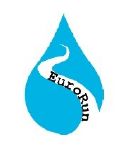




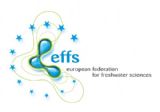
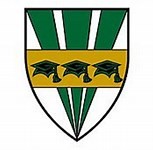
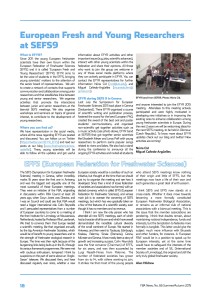
 The EFFS Board of Representatives is proud to announce the successful applicants for the first EFFS Award for the best PhD Dissertation in Freshwater Sciences (2013-2014). An international jury, composed of five members of the International Representatives of EFFS, have evaluated the pre-selected dissertations, which had been transmitted by the National Societies. Three candidates have been selected for the prizes.
The EFFS Board of Representatives is proud to announce the successful applicants for the first EFFS Award for the best PhD Dissertation in Freshwater Sciences (2013-2014). An international jury, composed of five members of the International Representatives of EFFS, have evaluated the pre-selected dissertations, which had been transmitted by the National Societies. Three candidates have been selected for the prizes.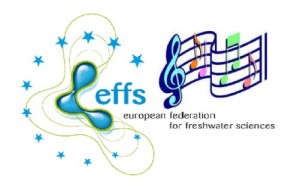
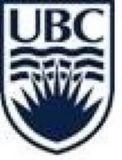 Post-doctoral Fellow: Cumulative effects across spatial scales in freshwater ecosystems
Post-doctoral Fellow: Cumulative effects across spatial scales in freshwater ecosystems
